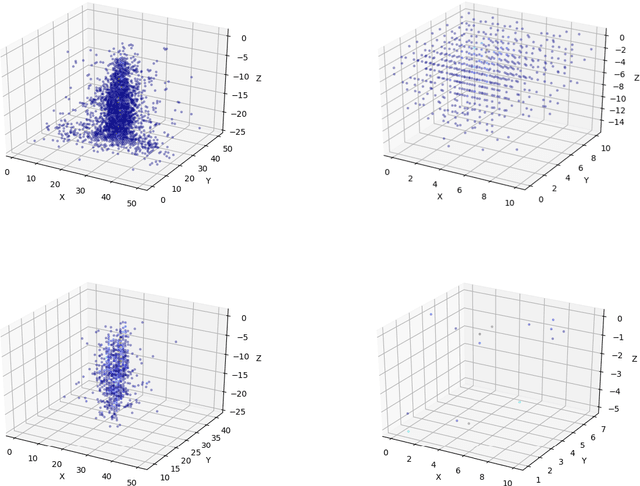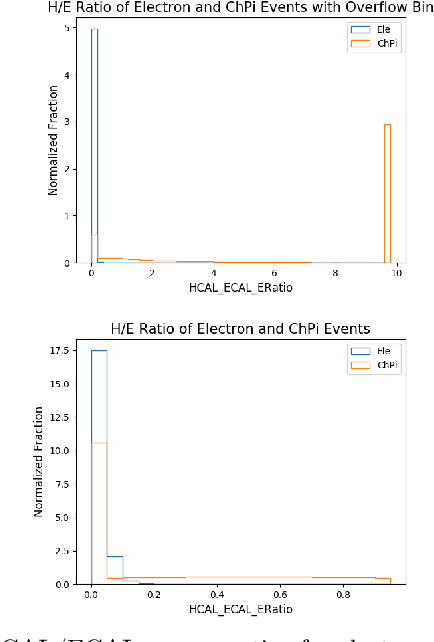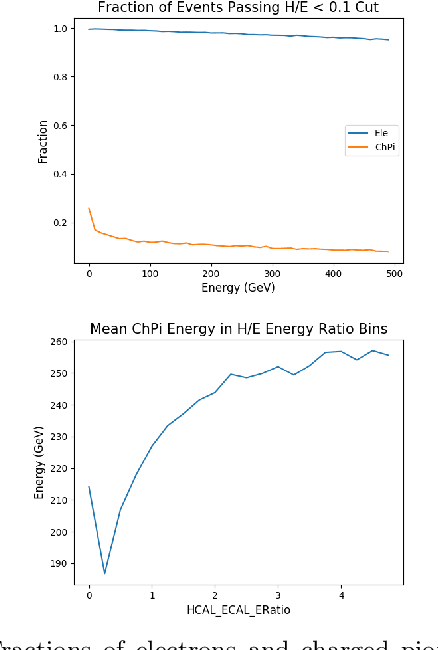Dominick Olivito
Calorimetry with Deep Learning: Particle Simulation and Reconstruction for Collider Physics
Jan 08, 2020



Abstract:Using detailed simulations of calorimeter showers as training data, we investigate the use of deep learning algorithms for the simulation and reconstruction of particles produced in high-energy physics collisions. We train neural networks on shower data at the calorimeter-cell level, and show significant improvements for simulation and reconstruction when using these networks compared to methods which rely on currently-used state-of-the-art algorithms. We define two models: an end-to-end reconstruction network which performs simultaneous particle identification and energy regression of particles when given calorimeter shower data, and a generative network which can provide reasonable modeling of calorimeter showers for different particle types at specified angles and energies. We investigate the optimization of our models with hyperparameter scans. Furthermore, we demonstrate the applicability of the reconstruction model to shower inputs from other detector geometries, specifically ATLAS-like and CMS-like geometries. These networks can serve as fast and computationally light methods for particle shower simulation and reconstruction for current and future experiments at particle colliders.
LHC analysis-specific datasets with Generative Adversarial Networks
Jan 16, 2019



Abstract:Using generative adversarial networks (GANs), we investigate the possibility of creating large amounts of analysis-specific simulated LHC events at limited computing cost. This kind of generative model is analysis specific in the sense that it directly generates the high-level features used in the last stage of a given physics analyses, learning the N-dimensional distribution of relevant features in the context of a specific analysis selection. We apply this idea to the generation of muon four-momenta in $Z \to \mu\mu$ events at the LHC. We highlight how use-case specific issues emerge when the distributions of the considered quantities exhibit particular features. We show how substantial performance improvements and convergence speed-up can be obtained by including regression terms in the loss function of the generator. We develop an objective criterion to assess the geenrator performance in a quantitative way. With further development, a generalization of this approach could substantially reduce the needed amount of centrally produced fully simulated events in large particle physics experiments.
 Add to Chrome
Add to Chrome Add to Firefox
Add to Firefox Add to Edge
Add to Edge